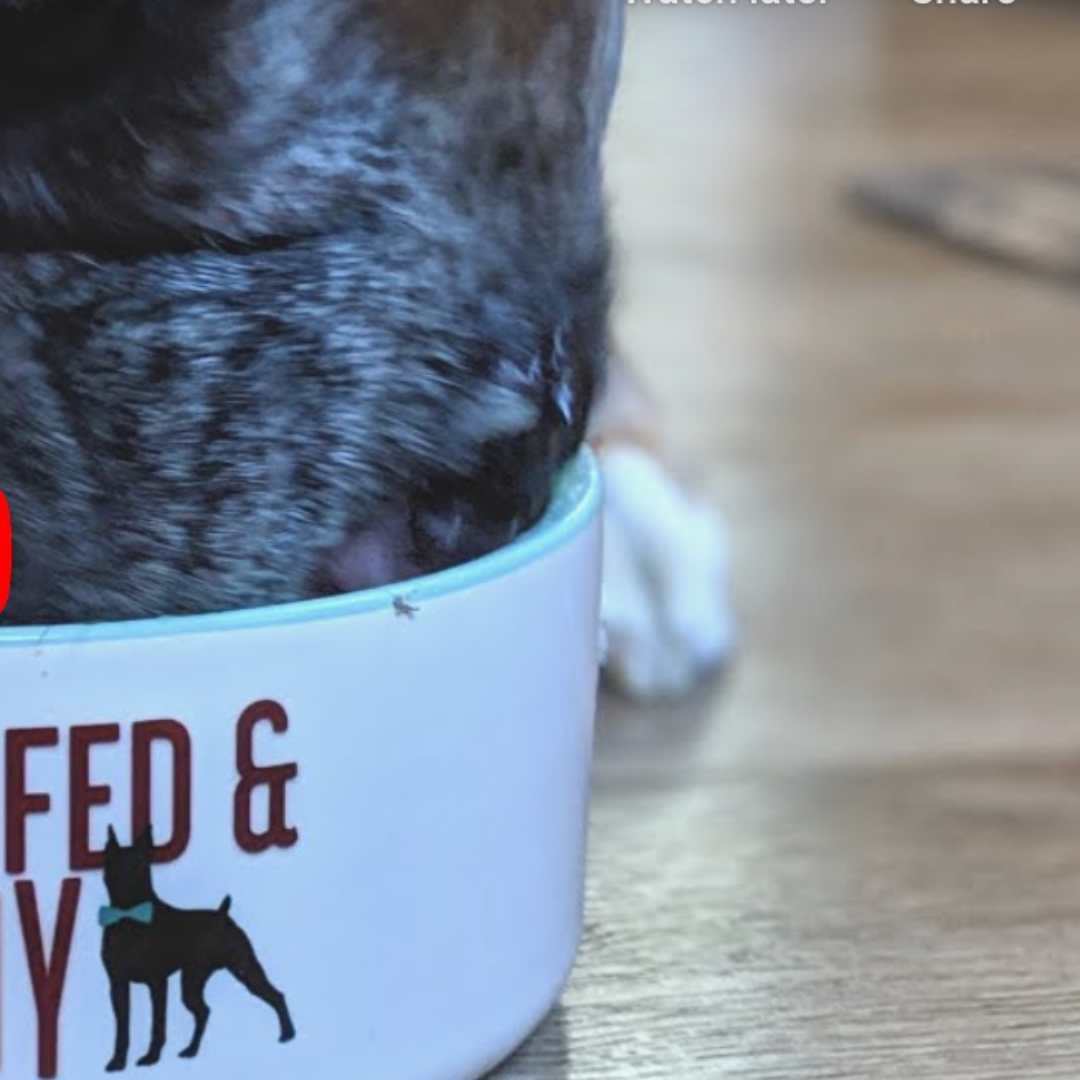Wondering how vitamins and minerals fit into formulating homemade food for your dog's diet?
Pet parents are always curious and a bit concerned about how to balance vitamins and minerals dogs need in their meals and how to be sure you're filling any gaps in homemade dog food recipes.
Let's talk about vitamins and minerals with a focus on what you need to know about them specifically for formulating purposes as they contribute and interact in your homemade dog food recipes.
A few things we want to think about in making homemade dog food that provides a balanced diet for our dogs...
- Balancing over time vs daily in your homemade dog food recipes. Which nutrients can be balanced over time as you formulate each homemade dog food recipe or better to stick with daily?
- Balancing nutrients relative to other nutrients in your dog's diet.
- Being aware of nutrients that often fall short in homemade dog food and foods to fill those gaps.
Knowing how these factors work together gives us a good foundation on the role of vitamins and minerals as we begin to do actual formulating.
If you'd like to watch me talk through this guide on formulating homemade dog food recipes with vitamins and minerals for more context, you can watch the accompanying video below.
Stop! Don't read this long article. Instead, get everything you need to know, including all advice on Homecooking Basics, in a customizable step-by-step plan for your dog created by our community of certified trainers and nutritionists.Your Dog's Plan
Vitamins: good-to-knows in formulating your dog's homemade dog food
The vitamins our dogs need to function and thrive fall into two types: water soluble and fat soluble. That matters in formulating because the two types behave differently in the body.
Water soluble vitamins
What that actually means
These are the vitamins we try to be sure to provide daily because dogs don't have a way to store them in the body. They're called "water soluble" vitamins because they dissolve in water and for that reason, they're easily absorbed into the body and metabolized more quickly than fat-soluble vitamins.
Give me an example... or a few
Water soluble vitamins include vitamin C and the B vitamins (folate, thiamine, riboflavin, niacin, pantothenic acid, biotin, vitamin B6, and vitamin B12). You'll find them in sources such as kale and blueberries for vitamin C and meat, poultry, fish, and eggs for the B vitamins.
Pro tip: water soluble vitamins can be lost in high-heat cooking. Good to know if you're preparing home-cooked dog food vs raw food. They can be vulnerable to loss in long-term freezing as well.
A word about the lesser-known (but cool to a pet nutritionist) choline...
Choline tends to get lumped in with B vitamins, but it's actually both water and fat soluble. It's a very cool nutrient from a pet nutritionist's eye-view because it helps your dog mobilize fat and helps keep the liver healthy and it helps support the brain as well.
Choline can be partially synthesized by some B vitamins, particularly folate, and by some amino acids, but if we can fulfill choline's recommended allowance (even though not required to fully meet it), it leaves other vitamins free to do their jobs.
We can find choline in liver, egg yolks, and red meat — as well as in foods lower in saturated fat like salmon, or in leaner meat like ground turkey.
Pro tip: water soluble vitamins are considered to have low toxicity. (The body eliminates excess it's not putting to good use.)
Fat soluble vitamins
What that actually means
As the name suggests, fat soluble vitamins are absorbed along with fats in the diet and are stored in the body's fatty tissue and in the liver.
Give me an example... or a few
These include vitamins A, D, E, and K. They're easily sourced in many plant and animal foods - and in dietary supplements. To give you an idea of some whole foods dogs love that deliver these vitamins: think sweet potatoes for vitamin A; eggs - vitamin D; salmon, avocado - vitamin E; kale, green beans - vitamin K... just to mention a few accessible favorites.
Pro tip: Sweet potato should always be cooked so your dog is able to digest it - and access its many nutrients. Boiling your sweet potato (not excessively) retains more beta-carotene/vitamin A and makes it more absorbable than other cooking methods.
Homecooking Basics
Interested in Homecooking Basics? Follow topics you're interested in to customize your dog’s step-by-step plan so it's most helpful and tailored to your dog when you're ready to get started.
A word about vitamin K (especially K2)...
Vitamin K seems somewhat less known than some of its fat soluble counterparts like A & D but it's a super beneficial nutrient for dogs. Within vitamin K, we have K1, K2, and K3. K1 we associate with plant sources, K2 is found in animal sources, and K3 is the synthetic that is what is often added to kibbles. The recommended allowance refers only to vitamin K1, although dogs can synthesize K1 unless there is a particular medical issue.
Both K1 and K2 help with proper blood clotting, an important benefit that's commonly associated with vitamin K. But vitamin K2 also serves other useful purposes like making sure calcium goes where it needs to go while keeping it away from where it shouldn't be (like soft tissues).
Give me an example
For example, K2 helps get calcium to the teeth. That's one of the reasons I like k2 in the diet working synergistically with vitamins A & D for great results in dental health.
Raw diets are super rich in K2 along with grass-fed-animal products and fermented foods. So even if it's not referenced for the recommended allowance, it's extremely beneficial and easy to include in your homemade dog food recipes.
Now let's take a look at minerals - vitamins and minerals are two very different things!
Minerals: good-to-knows in formulating your dog's homemade dog food
When thinking about minerals, we have macrominerals and microminerals, and that really has to do with how much is found in the body.
Give me an example
Calcium and phosphorous, for example, are macrominerals, while zinc and copper are microminerals.
Pro tip: minerals are quite hardy, so if you're formulating cooked homemade dog food recipes you won't see much lost in cooking.
What's better - daily balancing or balancing over time?
There are many minerals - and vitamins - you don't have to balance daily since they can be stored in the body. But it can actually be easier and better to do it daily rather than over time so you don't have to worry about figuring out the accumulated amounts and keeping track.
Give me an example
Calcium is a mineral that can be stored in the body, but it's better to shoot for daily balancing because anytime it falls short, the body will make up for that by pulling calcium from bones. Not a good thing for a dog at any age.
Home Cooking
Need more advice? Browse all guides in the Home Cooking Channel on topics like Recipes and Homecooking Basics - created by our community of certified experts for you and your dog.
Be aware of mineral interactions
A common micromineral interaction
One of the first things you run into in formulating homemade dog food is the zinc and copper ratio. Too much zinc could hurt the copper status as they interact. Usually we're looking for something in the range of a 10:1 ratio, zinc to copper, but don't get too hung up on strict ratios. Being slightly out of range shouldn't be a concern. Just be aware.
A typical macromineral interaction
Another interaction you'll encounter is the calcium and phosphorous ratio, which is less important in adult dogs because they can regulate absorption. That being said, high amounts of either of these will affect micromineral absorption. Again, I'm not really worried if we're a little outside of range - usually in the 1: 1.3 is the typical range for formulating.
When it comes to looking at mineral interactions, the interactions are numerous - numerous in the ways they can affect absorption in the gut and numerous in ways they can impact functions in the body.
How to get the tip-off on interactions & ratios
You'll remember we covered another interaction in our last guide - between polyunsaturated fatty acids and vitamin E. (The more PUFAs you add, the more vitamin E you need.) You can see some interactions among vitamins but not to the degree you do with minerals.
A good rule of thumb...
If you're providing enough of each one you don't usually have to worry too much about interactions. At the same time, I don't really like to use very high doses of anything if I don't have to, particularly from supplements. Vitamin E, for example, at high doses can act as a blood thinner and could affect absorption of vitamin K1.
Now you know the possibilities and watch-outs for balancing vitamins and minerals - which ones you could choose to balance over time or daily and which ones are likely to interact to cause shortfalls in nutrients.
It keeps life and nutrition easier and simpler!
Learn about fat-soluble and water-soluble vitamins, macro and micro minerals, and their interactions in this video to help in creating a balanced diet for your dog.
Choose how you'd like to view this guide's video.

Next up in the Home Cooking Channel on Dogly
Now that you understand balancing vitamins and minerals when making homemade dog food, let's learn about good protein and fat sources needed in homemade dog food recipes in the next step-by-step guide here.
Or hop over to the Home Cooking Channel if you'd like to ask a question in the Community discussion and start any of the other step-by-step guides in Home Cooking Basics or Recipes.
If you ever need more personalized nutrition guidance, please reach out!

